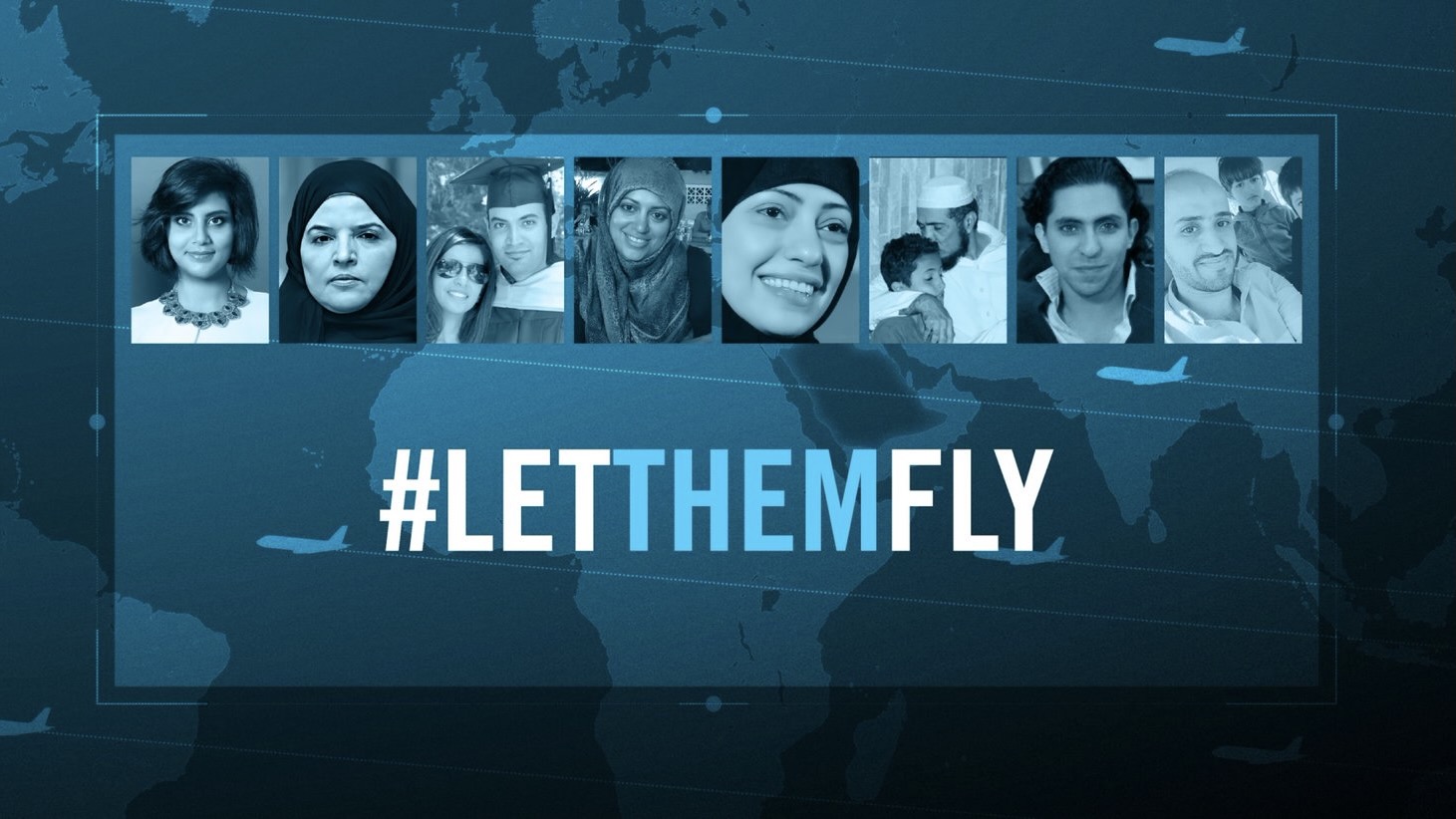Human rights group Amnesty International launched a campaign calling upon the government of Saudi Arabia to lift its draconian travel ban on human rights activists, journalists, government critics, and their families. The campaign highlights the cases of 30 activists who are facing severe travel restrictions even after serving their prison sentences. Amnesty said that Saudi Arabian authorities are using arbitrary and unlawful travel bans as a tool to punish and control activists, writers and journalists, either by locking them inside the country or targeting those living in exile or abroad by imposing travel bans on their families.
The campaign titled ‘#LetThemFly’ documents in detail the cases of 30 Saudi human rights activists and 39 cases of family members and relatives of activists who were subjected to travel restrictions. The activists, despite being convicted in unfair sham trials and completing their prison terms, saw the travel bans against them come into effect immediately. In the cases of the family members, travel bans were put in place without any official order or other notification, punishing both the activists and their relatives by not letting them meet and ensuring that they are separated for long periods of time.
Among the cases highlighted by Amnesty are that of Raif Badawi and Abdulrahman Al-Sadhan. Badawi, a free speech activist and blogger, was arrested in 2012 over a website he ran, Free Saudi Liberals, which called for freedom of expression and encouraged a debate on human rights and religious issues in the extremely conservative and tightly-controlled society. He was convicted on charges including insulting Islam and sentenced to 10 years in prison. He also received an exorbitant financial penalty, a travel ban, and an order for 1,000 public lashes over a period of 20 consecutive weeks. The punishment of lashes was suspended in 2015 following widespread international outcry and concerns regarding his physical condition. Badawi remained in prison from 2014 until his release in March this year.
Al-Sadhan, an aid worker with the International Red Crescent in Saudi capital Riyadh, was arrested in 2018 and forcibly disappeared for two years allegedly over running a satirical twitter account.
Badawi’s family lives in Canada and Al-Sadhan’s sister Areej lives in the US. They have not been able to meet their relatives for many years as a result of the travel bans on the activists. Areej said in a statement, “they are tearing families apart. This is unjust, illegal and inhumane. With a travel ban, Saudi Arabia becomes the prison, a place of punishment, a place that restricts people’s freedom and alienates citizens from their home country.”
Amnesty’s Deputy Director for the Middle East and North Africa, Lynn Maalouf, said, “Saudi Arabian authorities’ arbitrary use of travel bans against activists and human rights defenders reflects a bleak reality in the country, where dissenting voices continue to be ruthlessly silenced while leaders speak of progressive reform.”
She added, “activists who dared express any form of criticism or opinion not to the liking of the country’s leadership have become victims of unlawful and punitive travel bans that effectively curtail their freedom of movement, impacting major decisions in their lives.” She also said that “the Saudi Arabian authorities must lift all arbitrary travel bans, stop this vindictive practice and start respecting the rights to freedom of expression and movement.”





